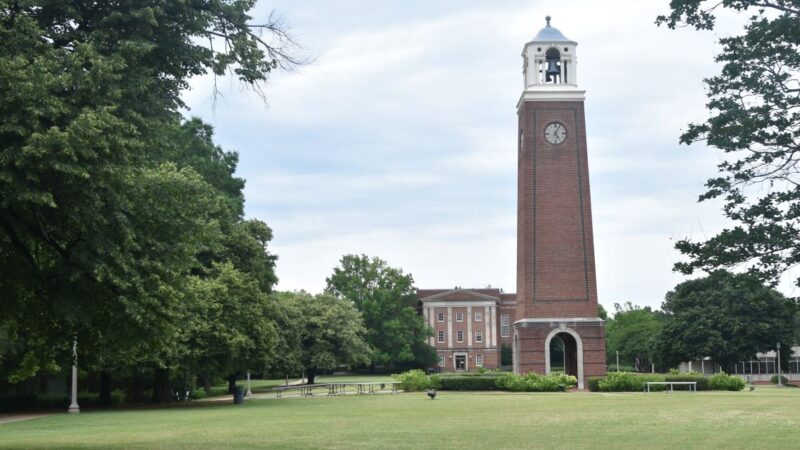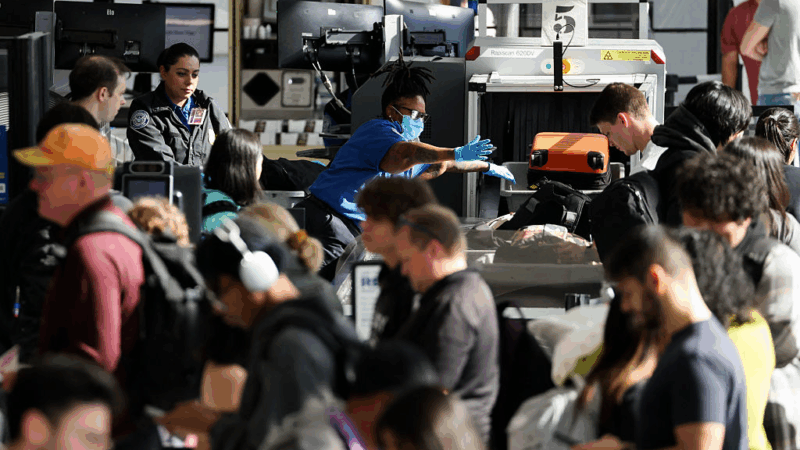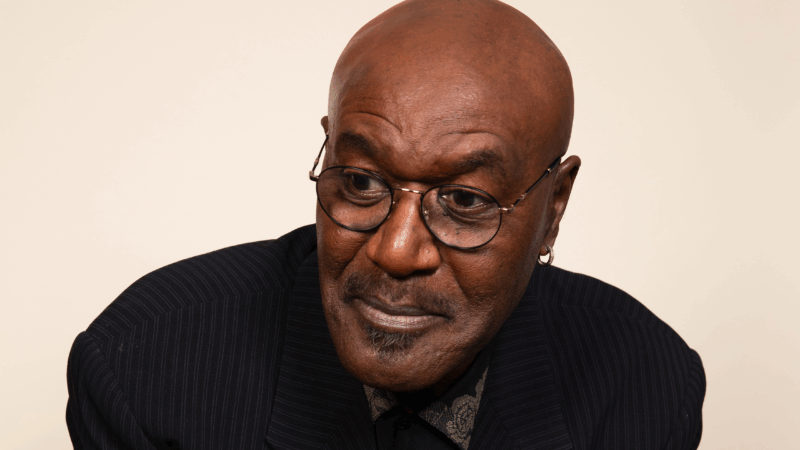National Guard presence may deter crime, but experts warn of the long-term costs
As the Trump administration expands its anti-crime initiative aimed at Democratic-led cities, criminologists are watching to see how effective the federal interventions will be in deterring crime.
There’s special interest in the effect of the National Guard, which don’t have direct policing powers. In Washington, they were often seen stationed near tourist sites, and were employed to pick up litter. But some research suggests their visible presence could make a difference.

Jerry Ratcliffe, professor of criminology at the University of Pennsylvania, compares the Guard deployments to the United Kingdom’s police community support officers, who wear uniforms but lack traditional police powers.
“And a strong study in the UK found that when they were deployed to crime hot spots, we actually saw a reduction in crime and disorder,” Ratcliffe says. “So it’s fairly clear that some kind of uniformed government presence, that doesn’t have to be the police, can have at least on the surface level a deterrence value.”
Whether the same applies to U.S. cities remains to be seen. Criminologists say the Guard’s military identity, coupled with their presence in cities that did not request them, could generate resentment.
It’s also unclear whether the federal government is following evidence-based “hot spot” strategies in deploying Guard units. Brandon Tregle, a criminologist at the University of South Carolina, notes that there is at least three decades of research showing the value of a more data-driven strategy in policing.
“We know that violent crime is concentrated both in place and in people. So about 10% of offenders account for about 50% of violent crime. And then about 10% of the most active places account for about 50% of violent crime in a city,” Tregle says.
He says this can be leveraged with well-tested formulas about how often a uniformed presence is needed in certain locations to maximize deterrence.
When asked if “hot spot” methods are guiding the deployment of National Guard, a spokesperson for the Justice Department would not comment, citing “operational security.”
In an emailed statement, the spokesperson wrote, “This Administration made a promise to the American people to make our cities safe again, and that’s exactly what we’re doing in Washington, DC, Memphis, and other high-crime communities across the country.”
Crime rates have been falling dramatically nationwide in the last two years, although violent crime in cities such as Washington and Memphis remain well above the national average.
The president fueled further uncertainty this week when he told military generals and admirals that “we should use some of these dangerous cities as training grounds for our military.”
It’s unclear what Trump meant. In Oregon, where about 200 of the state’s own National Guard members have been federalized to protect federal buildings in Portland, state legislators asked Russell Gibson of the Oregon Military Department whether he knew of such a plan.
“Not that I’m aware of,” Gibson said on Tuesday. “And I would hate to speculate on what that looks like, but I can’t picture in my mind what that would look like at all.”
Gibson added that Oregon Guard troops sent to Portland have been trained for crowd control, with many serving as police officers in their civilian jobs. He also said the state was careful to assign troops from other parts of the state, so their deployment wouldn’t reduce the number of law enforcement officers in the Portland area.
Despite the uncertainties, short-term results in Washington, D.C., have shown crime dropping during the first two months of federal involvement, especially murder rates compared to the previous year.
Jim Burch, president of the National Policing Institute, says that outcome is not surprising.
“Any city in America with a 50% increase in their officers is going to be able to have some kind of impact on public safety. But that’s not reality. That’s not the fiscal reality,” Burch said.
He also warned of potential unintended consequences for local police after such a federal crime-fighting crackdown.
“The question is, is the short-term benefit of that work worth the potential cost of eroded trust and relationships with the community? That’s what we have to ask.”
Mixed reactions, including relief, greet news the Coast Guard is buying BSC campus
The U.S. Coast Guard will take possession of the 192-acre campus in the northeast corner of Birmingham’s Bush Hills Neighborhood and will begin work to refit it as a training center for officers and enlisted personnel.
Travel industry pushes Congress to end DHS shutdown and pay federal security workers
With the busy spring break travel season looming, travel and aviation industry leaders urged Congress to end the stalemate over DHS funding before workers at TSA and ports miss a full paycheck.
Trump fires Kristi Noem as DHS chief, names Sen. Markwayne Mullin to replace her
President Trump has fired his homeland security secretary, Kristi Noem, and said Markwayne Mullin, a senator from Oklahoma, would replace her.
They were led off course in a big race. But a fix is more complicated than prize money
Top finishers in the Atlanta half marathon are calling for U.S. track officials to ensure that Jess McClain and two other athletes aren't excluded from the world championships because of an error.
No matter what happens at the Oscars, Delroy Lindo embraces ‘the joy of this moment’
Lindo is nominated for best supporting actor for his role in Sinners. At the BAFTA awards on Sunday, Lindo was presenting when a man with Tourette syndrome in the audience yelled out a racial slur.
Between Megan Moroney and Ella Langley, country women rule the charts
It's a big week for women in country music — and, it turns out, for women whose songs are favored by women in figure skating.







